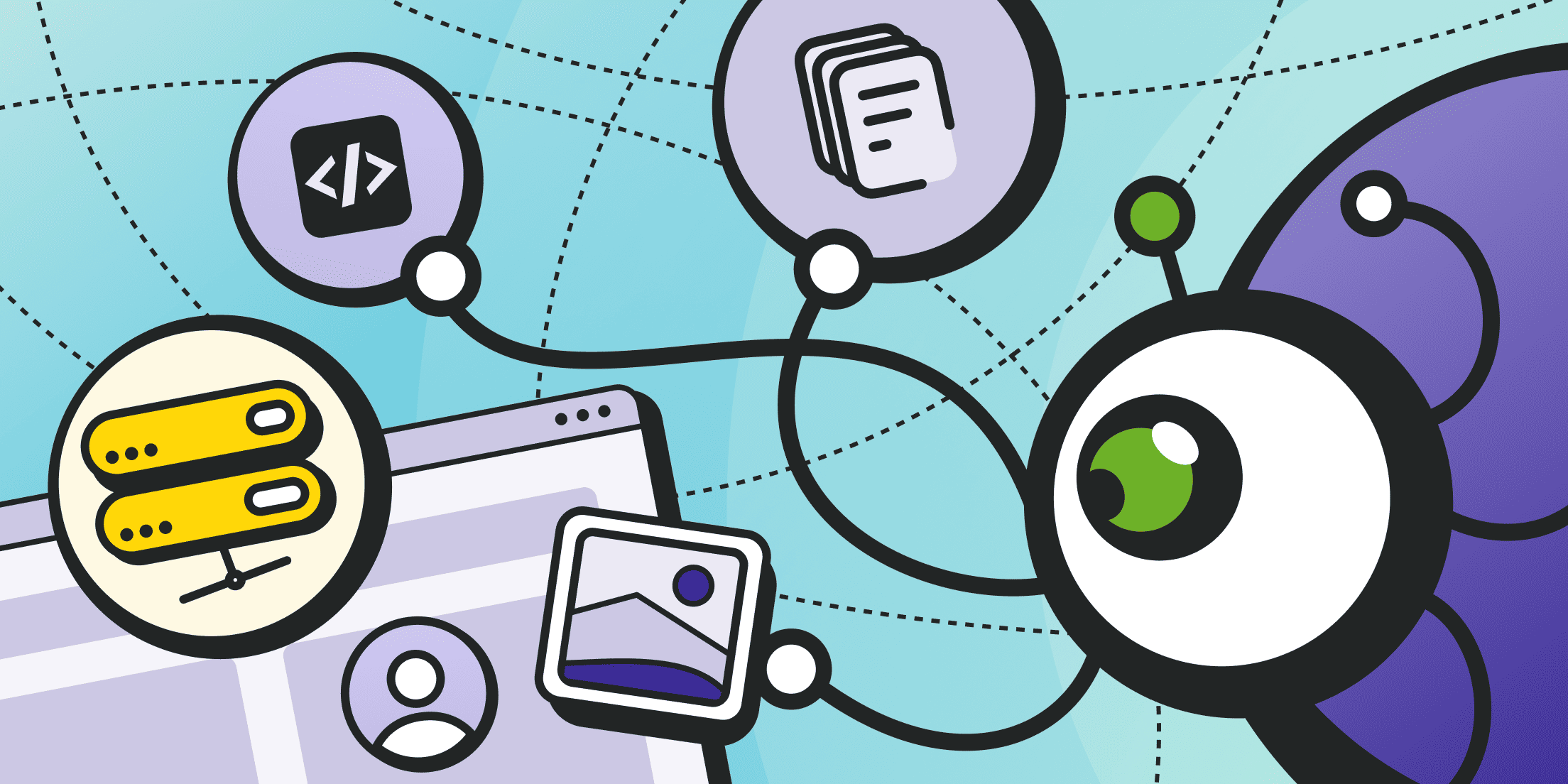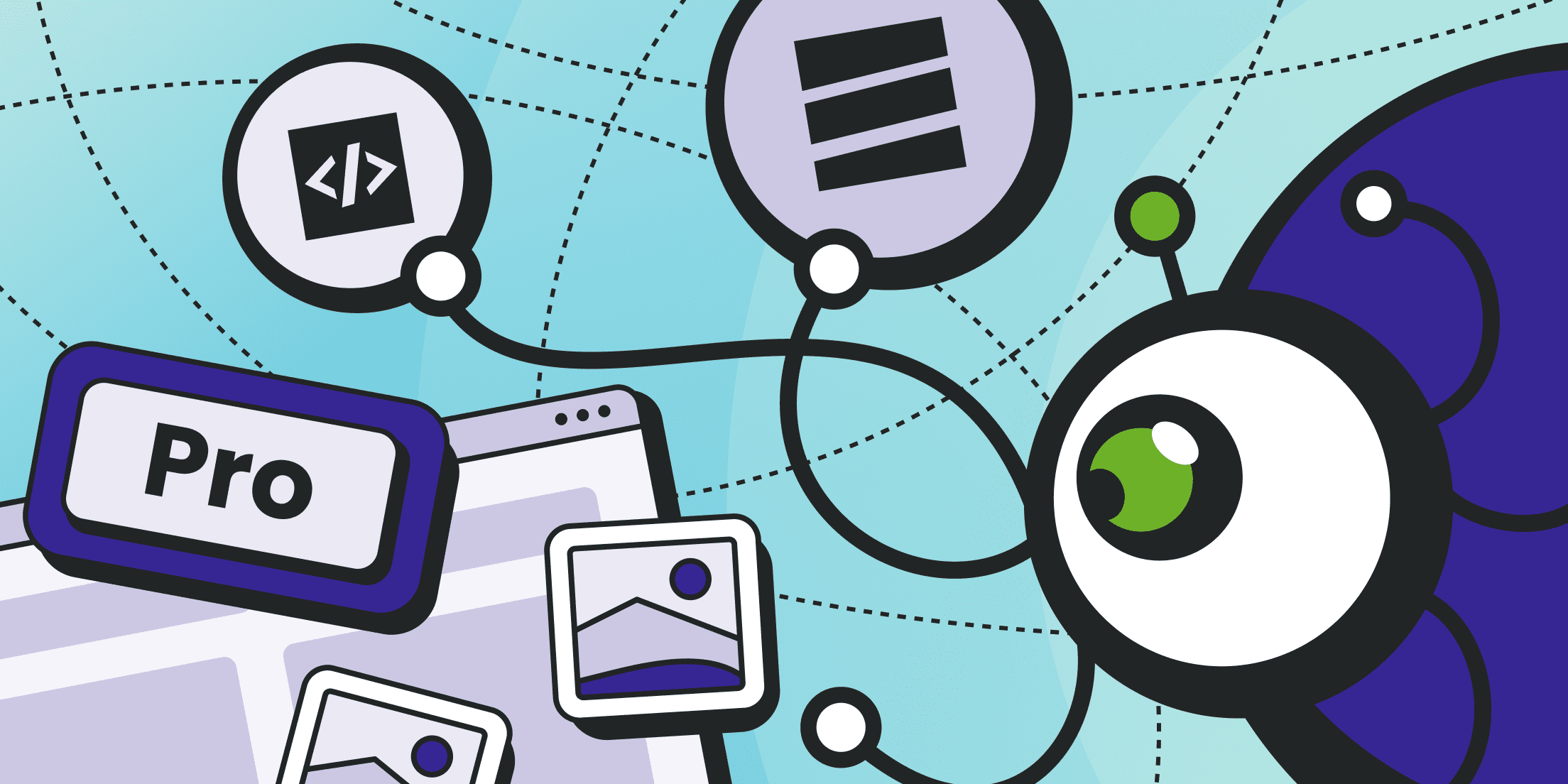Manually collecting data from websites can be time-consuming and prone to errors, especially when dealing with large volumes of information or frequently changing page structures. Traditional web scraping methods require constant updates to adapt to these changes, making the process less efficient. AI web scraping offers a solution to this problem by automating data extraction, improving both speed and accuracy. But not everything is as simple as it may seem, and there is a downside to AI scraping as well.
In this article, we’ll explore how AI enhances web scraping, making it more adaptive and reliable, and also learn about its main disadvantages.
What is Web Scraping?
Web scraping is a technique used to extract data from websites. It involves automated processes that collect information from web pages and convert it into a structured format, such as tables or databases. While web scraping can be done manually, it is typically performed using specialized software or bots that automate the process.
There are different types of web scraping techniques, each designed for specific use cases. These include HTML scraping, API scraping, and screen scraping. Screen scraping, for example, captures data directly from a user's screen, which can be useful when other methods are not feasible.
The main goal of AI web scraping is to gather useful information that automated systems often find difficult to access. Websites are designed for human users, with data embedded in HTML or other markup languages. AI web scraping cleans this content and makes it easy to analyze and utilize.
AI scraping usually includes the following core tasks:
- Finding particular information
- Extracting internet content
- Following activity on the pages
AI web scraping is used in many different sectors, such as market research, price comparison, and competitive intelligence. Businesses can improve these processes with the aid of AI web scraping.
How AI Works in Web Scraping
Artificial intelligence brings more efficiency and accuracy to web scraping. While traditional scrapers follow set rules for data extraction, AI-based web scraping uses intelligent algorithms to learn from the information they gather and adjust their approach. This enables AI Data scraping to deal with different page layouts and more intricate ideas.
AI web scraping includes the following key techniques:
- Natural language processing (NLP). This enables scrapers to comprehend and interpret human language on web pages. As a result, extracting relevant information from content-rich sites becomes much easier.
- Machine learning. AI analyzes patterns in the collected data and improves its scraping methods based on what it learns. When the scraper faces new content types or changes in website structure, it can adapt its approach automatically, without requiring manual updates.
- Image recognition. AI can identify and extract relevant data from images for sites that use images instead of text (like product listings).
AI web scraping becomes more versatile and can handle complex tasks that traditional methods might struggle with thanks to these techniques.
Advantages of AI Web Scraping

AI web scraping offers several significant benefits over traditional methods.
1. Efficiency and Speed
AI-powered scrapers work through large amounts of data much faster than humans. They can gather information from several pages at once without slowing down or making mistakes. This speed is key for businesses that need real-time data.
2. Adaptive Learning
AI scrapers differ from traditional ones because they don’t need frequent updates to adjust to changes in website layouts or content types. Instead, they learn from past experiences. This ability allows them to automatically adapt to new structures and formats, which cuts down on the need for constant maintenance.
3. Real-Time Data Collection
AI web scrapers can collect data continuously, providing businesses with up-to-date information. This capability is particularly valuable in industries like e-commerce and finance, where market conditions can change rapidly.
4. Enhanced Data Quality and Accuracy
Artificial Intelligence systems enhance data quality standards. Such instruments eliminate irrelevant details and concentrate on the core aspects of a given issue. The result is accurate and relevant data that reduces errors at every stage, from data collection to data analysis.
Use Cases for AI Web Scraping
AI web scraping has a wide range of applications across various industries:
- Market research and competitive analysis. Businesses use AI for web scraping to gather insights about competitors by analyzing their product offerings, pricing strategies, and customer reviews.
- Content aggregation. Media companies and content creators often use web scraping with AI to gather news articles, blog posts, or social media content on specific topics. This aggregated content can then be analyzed or republished in a more digestible format.
- E-commerce and price monitoring. AI web scraping is widely used in the e-commerce sector for real-time price monitoring. Retailers use AI web scraping to track competitor prices and adjust their own pricing strategies in real-time, ensuring they stay competitive in a fast-paced market.
- Healthcare Data Collection. In the healthcare sector, AI web scraping gathers data from clinical trials, medical journals, and research articles. This information enables researchers to identify trends and breakthroughs in medical science, ultimately advancing patient care and treatment outcomes.
These varied applications showcase how AI web scraping can revolutionize data collection across different industries, providing organizations with valuable insights that drive strategic decision-making.
Potential Drawbacks and Ethical Considerations

Despite its advantages, AI web scraping also comes with potential drawbacks and ethical concerns.
Legal Issues
Web scraping occupies a complex legal landscape that varies by jurisdiction and the specific context of the scraping activity. While AI web scraping itself is not inherently illegal, it can lead to legal complications if it violates the terms of service of a website or infringes on copyright, privacy, or data protection laws. Trying to parse LinkedIn, for example, can have unpleasant consequences due to the requirements of different regional laws.
Copyright and Intellectual Property Concerns
Scraping copyrighted content without permission can lead to significant legal repercussions. Copyright law protects the expression of ideas, meaning that while facts can be freely gathered, the specific way they are presented (like articles or images) may not be. Companies must tread carefully to avoid infringing on intellectual property rights when collecting data from websites.
Ethical Concerns and Data Privacy
The ethical side of AI data scraping is just as significant as the legal one. Companies should think about how their data collection affects people’s privacy rights and the trust users have in digital platforms. Who would be comfortable knowing that AI services are storing personal information without consent? There have already been cases where artists and public figures sued companies for using their work to train AI models without permission, which shows how serious this issue is.
Many users aren’t aware that their information is being scraped and used for commercial purposes. Ethical AI data scraping requires transparency about how data is collected and used, ensuring that individuals' privacy is respected.
Obtaining explicit consent from individuals before collecting their data is essential for ethical compliance. Organizations should implement clear policies on handling personal information and provide users with options to opt out of data collection practices.
Is AI Scraping Better Than Traditional Scraping?
AI-driven web scraping provides speed and adaptability, but traditional scraping offers greater control and customization. With manual setup, you can fine-tune scrapers to fit your exact requirements. It does take more technical expertise, but it also gives you the flexibility to manage specific tasks without relying on AI’s automated processes. Even though there are plenty of AI-powered scraping tools out there now, we’re firm believers that traditional methods still have a lot to offer, providing more control, customization, predictability, fewer external dependencies, and long-term cost-effectiveness.
If you're looking to learn more about web scraping, check out our guides:
- eBay Scraping with Froxy Scraper
- Tools to Scrape Data from Amazon
- A Comprehensive Guide to Scraping Websites for Emails
These resources will walk you through the process and help you get the most out of your scraping setup.
Conclusion

AI scrapers, through automating complex tasks and learning from past experiences, achieve greater efficiency and accuracy compared to traditional methods. AI scrapers automate complex tasks and learn from past experiences, offering more efficiency and accuracy than traditional methods. They are highly beneficial in industries such as e-commerce, healthcare, and content aggregation. Ethical and legal concerns, such as data privacy and intellectual property, must be handled with care. When applied thoughtfully, AI scrapers help gather valuable insights that contribute to growth and innovation, all while ensuring compliance with industry regulations and respecting individual rights.
A personalized approach might be more effective in some cases. With the right technical skills and a willingness to set up scraping on your own, you can achieve greater flexibility, control, and closer adherence to ethical guidelines. Tailoring the scraping process to fit your specific requirements helps to bypass the usual limitations of pre-built AI solutions.




